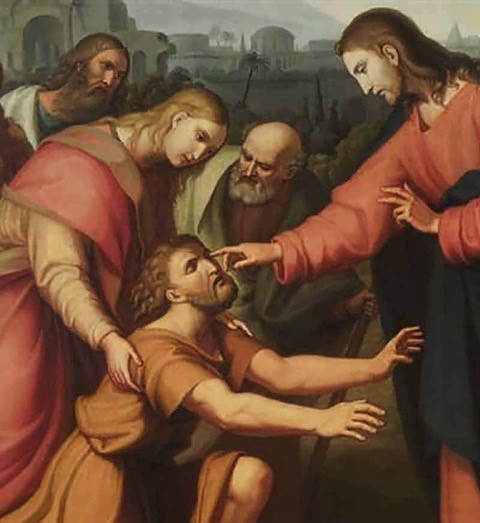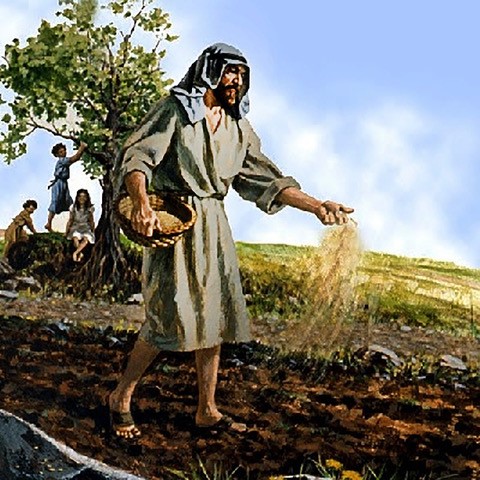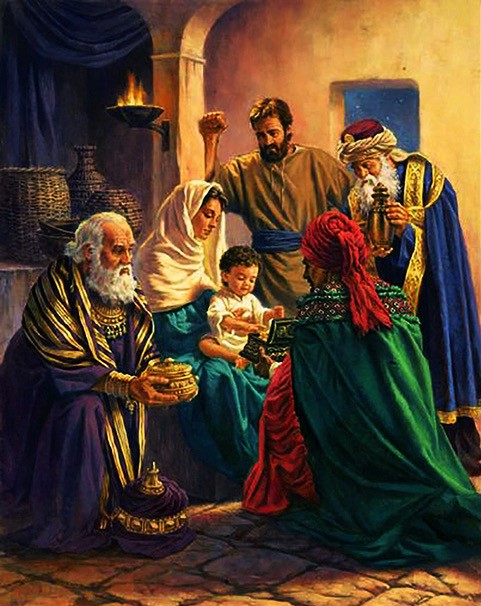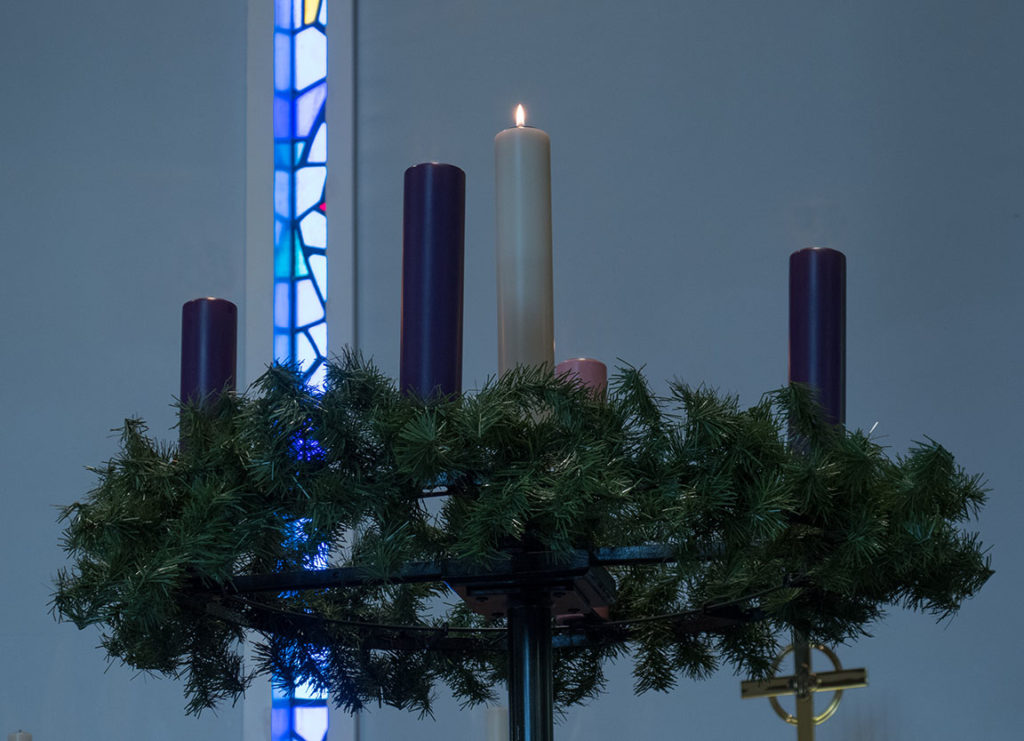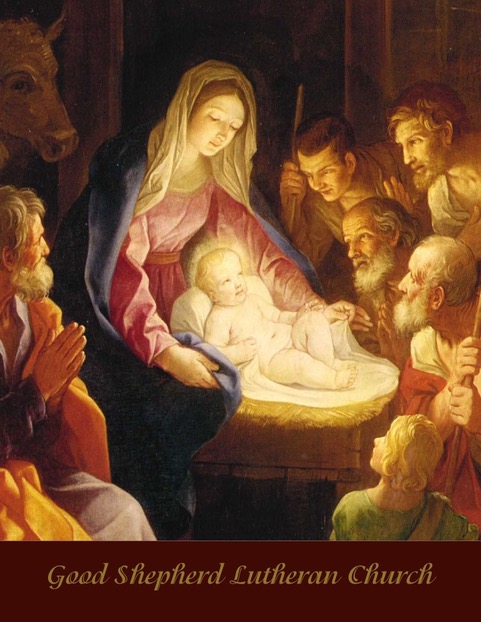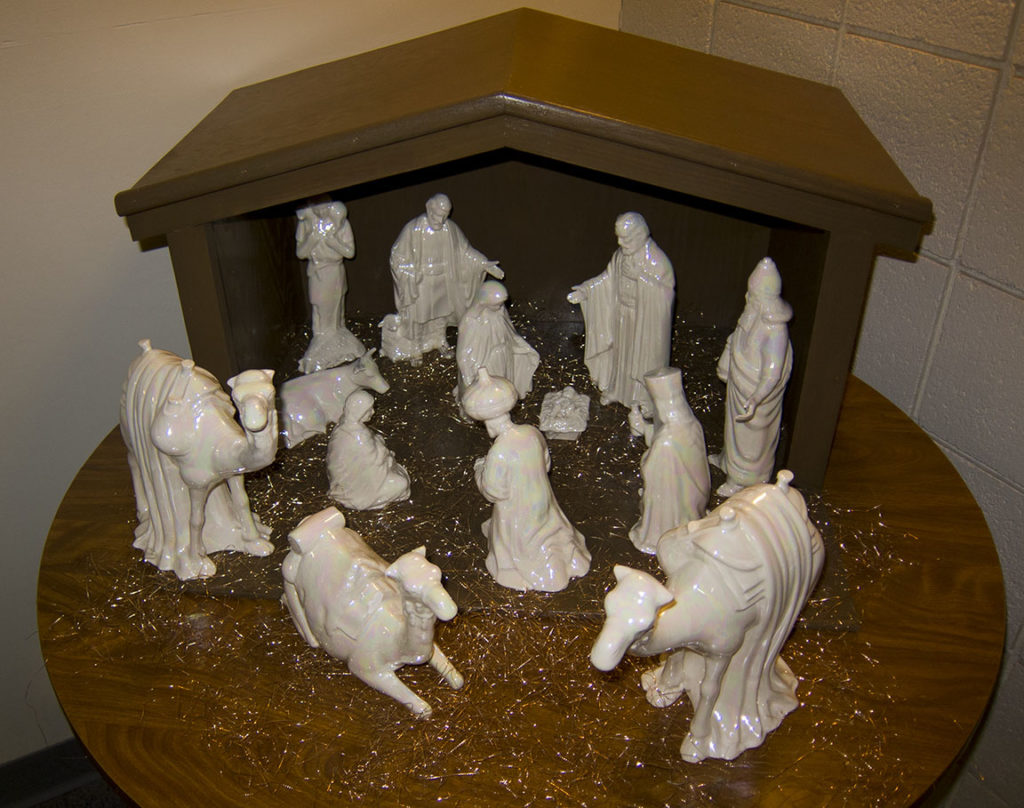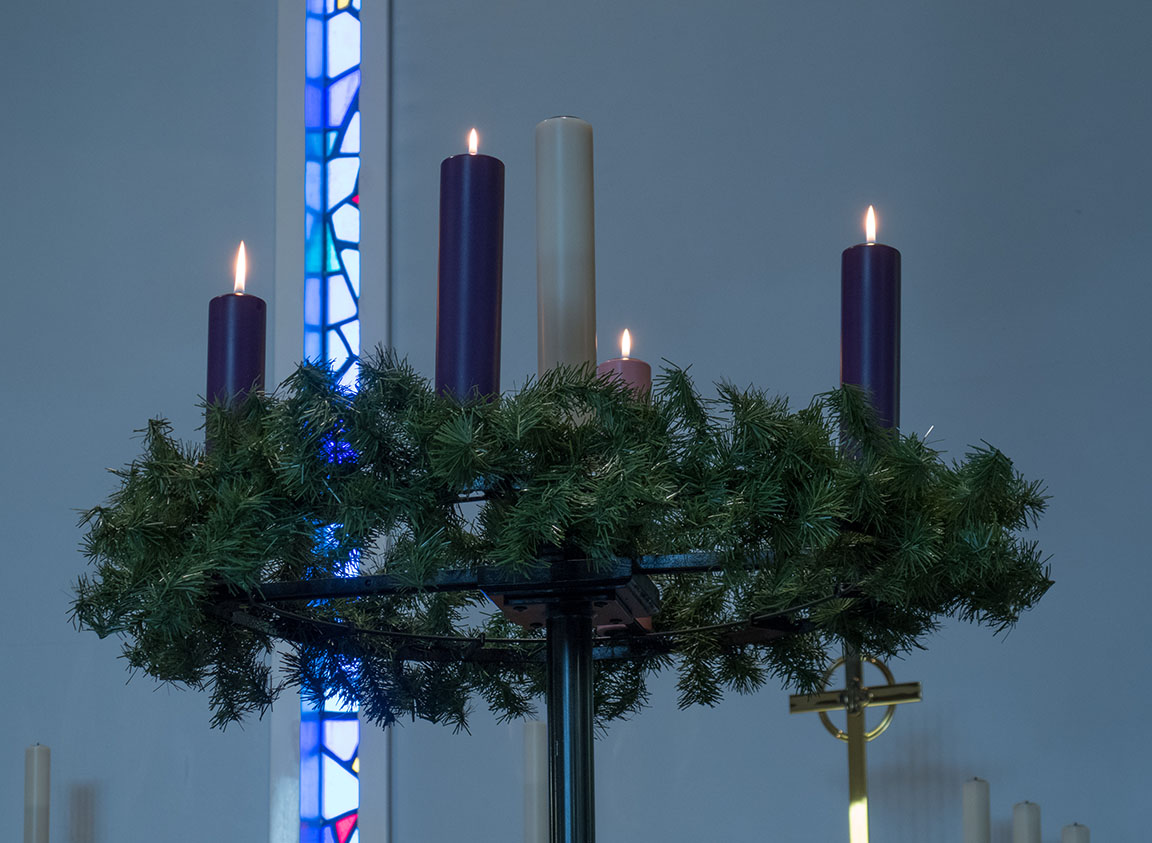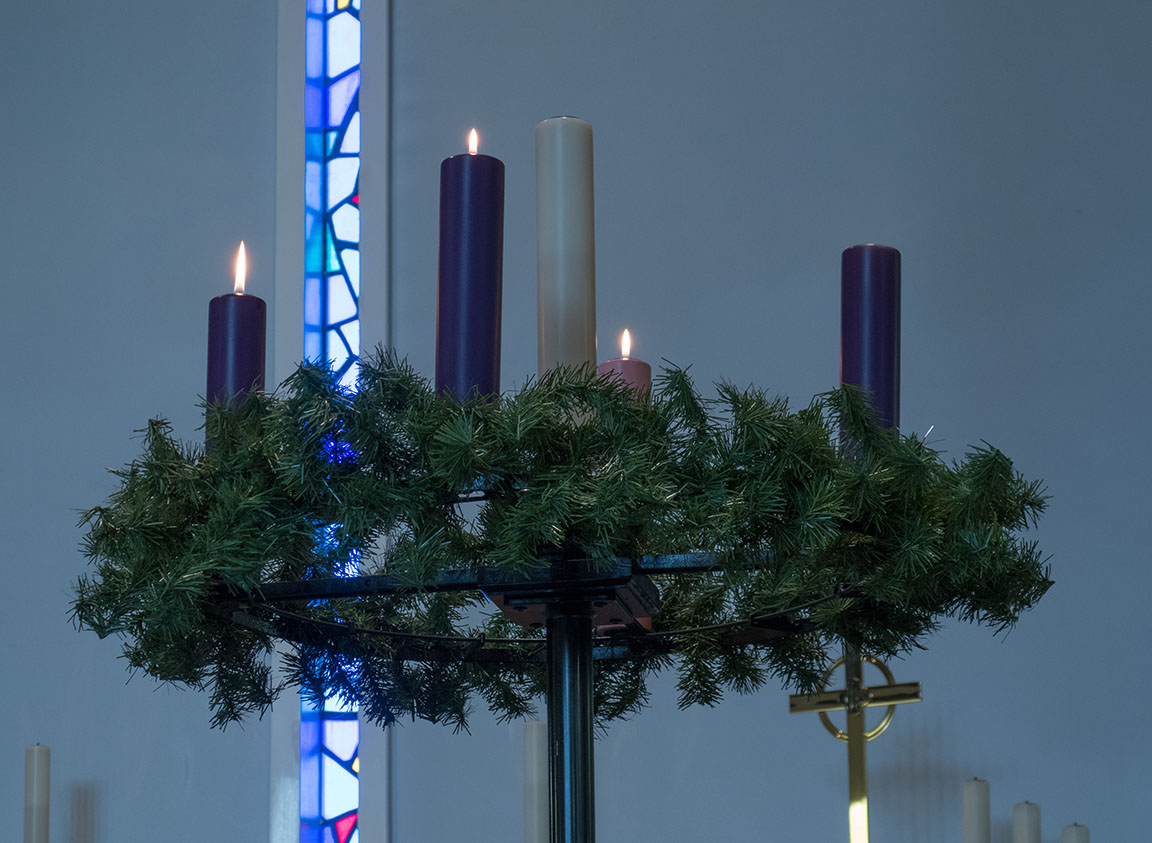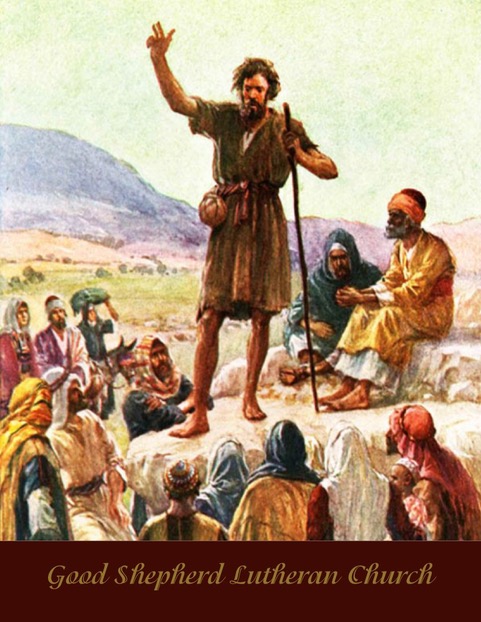Notes
The Lord be with you!
Merry Christmas! O Lord, our Lord! How majestic is Your name in all the earth! We have embarked on a twelve-day season that is rich with the joy of God, our Maker and Redeemer, as He came among us in our lowly human flesh. And yet the season is also tinged with the sacrifice of those who loved our Lord to the utmost. Sunday’s readings continue the Christmas mystery, the hidden gift of Jesus with a focused emphasis on His very name, which means the Lord Saves. Jesus is not only who our God is, but He’s also all that our God has done, is doing, and will continue to do unto eternity.
Let us pray the collect for the first Sunday after Christmas:
O God, our Maker and Redeemer, You wonderfully created us and in the incarnation of Your Son yet more wondrously restored our human nature. Grant that we may ever be alive in Him who made Himself to be like us; through Jesus Christ, our Lord, who lives and reigns with You and the Holy Spirit, one God, now and forever.
Amen.
2 Samuel 7:1–16
God’s identity and His activity are fused together into one: that’s His name, His reputation, His promise to the people in whom He is pleased. King David desired to honor God’s name with a house built by hands as a token of praise and thanks. The prophet Nathan would have gone along with it, if he were guided only by his own human wisdom; sure, it’s a noble thing to show honor to God, because by faith we’re confident of His mercy and love toward us. But then God revealed to Nathan, who passed along to David, yet a further blessing that took things to an even greater level. David would not build a house, that is, a structure, for God, as his son Solomon would eventually do. Instead, God would build a House, that is, a whole kingdom, for David. This house, this Zion on a hill, would be the Christian Church, dedicated and founded by David’s greater Son, Jesus. Unlike the earthly house that was eventually destroyed (several times in fact), God’s house in Christ would endure forever.
Galatians 4:1–7
The circumcision and naming of Jesus indicate, among many other things, the profound truth that God placed Himself under His own law. He needed to do this in order to procure our adoption into His grace. We have officially and legitimately joined God’s family, and the benefits of that status for us means we have the right and the privilege to call upon God as our own Father in prayer.
Luke 2:21–40
The Christmas Eve Gospel from Luke 2 ended with the shepherds spreading the word about the birth of Jesus. The very next verse continues the Christmas story with the circumcision and naming of Jesus, in accord with God the Father’s plan as it was announced by the Angel Gabriel. The name of Jesus is significant, and it is profound that His circumcision, His first blood sacrifice, accompanies it. How does the Lord save? How does He “Jesus” us? God must shed blood- His own true God and true Man blood. Only now do we fully comprehend what God was up to when He commanded the ritual of circumcision to Abraham so long before. This Gospel is all of one whole verse long on the actual eighth day of the Christmas season: New Year’s Day. Today, we follow it up with another major event in the infant life of our Savior, His presentation in the temple, the ritual purification of Mary, His mother, and the joyful Nunc Dimittis song of Simeon and the praise of the elderly widowed prophetess Anna.
Here’s hymn 358, stanza 13- from Martin Luther’s own Christmas hymn:
Ah, dearest Jesus, holy Child,
Prepare a bed, soft, undefiled,
A quiet chamber set apart
For You to dwell within my heart.
In the name of the Father, and of the Son, and of the Holy Spirit, Amen.
Pr. Stirdivant
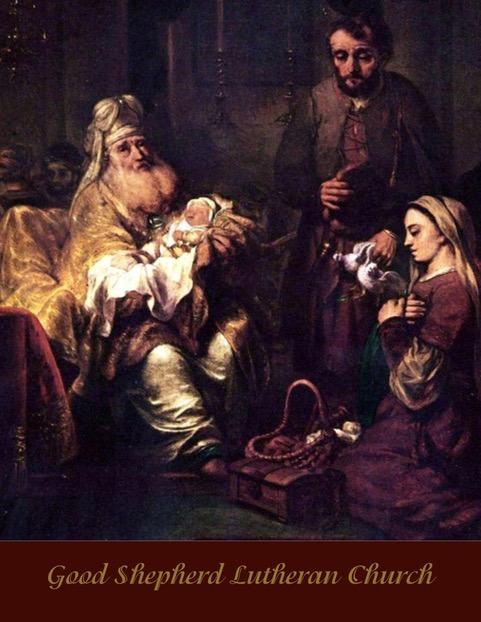
Simeon
Sermon for the Sunday after Christmas: December 27, 2020 jj
Rev’d Mark B. Stirdivant, Good Shepherd Lutheran Church, Yucaipa, California
✝ sdg ✝
When Jesus received His name, blood was shed. It was the eighth day that His true God and true baby boy lungs breathed our world’s sinful, polluted air. He was circumcised when He was given His name, and I’ll guarantee you, the Little Lord Jesus—lots of crying He makes! But for Him to receive the name Jesus, the name that the Angel Gabriel announced to Mary nine months prior, that name means God’s Love for us, but for Him, it meant pain and death. The name of Jesus is no mere identifier. It wasn’t used to distinguish Mary’s firstborn from all His other earthly family members, His legal father Joseph, His brothers and sisters. The name Jesus means everything Jesus is and all that He came to do. All the basics of the Christian Faith that we reflect on from the Catechism, namely the Creed, the Ten Commandments, the Lord’s Prayer—those are all summarized for us in one word, the name of Jesus.
Jesus is our Savior and our Salvation. He is our Forgiver as well as the Forgiveness we have received. He is the Host of the Lord’s Supper, and He is our Food that we eat at this Altar. This is Jesus: He’s Christmas, Easter, Pentecost, All Saints’ Day, the Last Judgment, all of it wrapped up for us as yet another gift from our True Love on this the third day of Christmas. When our Lord received the name of Jesus, He abandoned His legal right to firstborn sonship, placed Himself under His own Divine Law, and gave the full rights of adoption to us instead. The phrase, “we might receive the adoption as sons” sounds too iffy in the English translation. The original states it as a certain, unchangeable outcome for us—because Jesus received His name, your name is now child of God forever! The trade-off was made with no trade backs.
The world and its evil master once had slave ownership of you. The darkness that dominated you was deeper than the darkness of the womb where you began your life. The world’s elementary principles, as we read about in our Epistle, were your fundamental truths of life. Truths like: The moment you’re born, you begin dying. There’s never a free lunch. Never trust a stranger. Try to make the most out of life because what you see in this world is all there is. That was your previous taskmaster. That’s what ruled you with disappointment, despair, and the hammer-blow of destruction from the Law of God that demanded your punishment.
Then you said, Save me, O Lord, by Your name! Save me, with Your Jesus. Take my sin, my hurt, my pain, my misgivings about myself, my anxieties about the future, and carry that bloody burden on Your shoulders to the cross for me! I have nowhere else to turn. I have no other name by which I will be saved. I must turn only to Jesus. All His blood, from the circumcision knife in Bethlehem to the soldier’s spear on Calvary, that’s the name of Jesus for me. That’s how I now have the privilege to call out, “Abba Father” to the God who made me and all creatures, who has given me my body and soul, eyes, ears and all my members and still takes care of them. Jesus is my key to all those blessings and more. When I call out the name of Jesus, I possess right at this moment my forgiveness of sins, my resurrection of the body and my life everlasting—everything I was promised and had handed to me when I was baptized.
No wonder Simeon praised God and proclaimed he was ready to die at the moment he took the baby Jesus up in his arms at the Jerusalem temple courtyard. That location was the place God set aside for His name, as He promised long ago to King David in our Old Testament reading. And no wonder the elderly prophetess Anna flitted with exuberant joy from this person to that person, announcing the end of her fasting and the answer to her constant prayer. Her earthly husband had been long gone, but now she bore witness to the greater marriage of Jesus Christ to His Church, a union that will never be separated, this time not even by death. This is the name of Jesus to these saints and also to you. Israel received its Consolation. Jerusalem was redeemed from slavery. The same has happened for you in the name of Jesus.
There are just a few days left on the calendar for the year that, on average, most people I know would like to forget. As you talk about next year with just about anyone, you’ll encounter a whole lot of hope that’s riding on how 2021 will turn out. Where will the power of that hope come from, do you think? Will we just enter the new year with the same sins, diseases, failures and fears of the old year? How will we get the fresh start that we fervently desire? None other than by the name of Jesus. In the name of Jesus, resting confident in His assured pardon, we confess our sins. We admit our wrong doings of thought, word and deed. We abandon our selfish habits with more diligence than when we wash our hands. We silence our hurtful words more often than we put on our masks. If there was anything you knew without a doubt that would protect you from Covid, you would do it. Well, for your spiritual health, which is even more important, call on the name of Jesus, believe that you are saved by His name, for there is your single, absolute guarantee that Satan and this world will not separate you from the love of God.
Thanks to the bloody, salvation-rich name of Jesus, you are not placed under the harsh guardianship of the law anymore. You are now adopted into sonship, with full rights of inheritance that come with the name you’ve been given. You have been made a precious sheep, a lamb of the Good Shepherd’s pasture. The deep darkness, the valley of the shadow of death has forever been brightened for you with Christ the true light of the world. As you emerged from this womb of new birth, you are now governed by new elementary principles, new truths such as, the moment you were drowned and buried in Baptism is the moment when you truly begin living in the life that Jesus came to bring to this world.
The precious gifts of God cannot be bought with money, and they are handed out in His Church for free week after week. In this new life under Jesus’ name, you’ll find the friends who will remain friends even when they don’t have a way to benefit from you in any form. You’ll also find it easy to be that kind of selfless friend to your neighbors whom God has placed in your life. The agonizing, painful, mournful 2020s that we’ll ever come across in this life aren’t worth comparing with the certainties, joy, the confident assurances that God has prepared for you, better than even the best hope for 2021 could ever attain.
Now that the name of Jesus no longer means for Him a painful, bloody execution on the cross, He is glorified with the name at which every knee shall bow and every tongue confess Him as the Lord. As that Day draws ever nearer, He gives His name to you, He places His name on you so that you will receive an undying confident trust in the salvation that He gives to you along with that name. The name of Jesus distinguishes you from the world in which you currently live, a world that wants nothing to do with a Savior from sin, indeed a world that looks with eager expectation and hope toward anyone else but the true Jesus. You’re different, you stand out. You aren’t swayed by the appalling events that tell us the present world is passing away. You have the name of Jesus that far outshines anything this world could regard as good. You have what will last forever.
Today is the commemoration day of John the Evangelist, the one who unveiled himself at the very end of his book as “the disciple whom Jesus loved.” And near the end of his book John summarized his ultimate purpose in writing down what the Holy Spirit gave him to write. He said: “Jesus did many other signs… which are not written in this book; but these are written so that you may believe that Jesus is the Christ, the Son of God, and that by believing you may have life in His name.” Now you know a little more about what it means to “have life in His name.” That it means everything Jesus is, and everything He did, and still does, all out of Love for the world, and that name is yours for your life now, next year, for the rest of your life, and for eternity in the life of the world to come. The name of Jesus is how you know without any doubt that you have that life as your very own.
In the Name of the Father and of the ✝ Son and of the Holy Spirit.

White Parament
Readings:
Isaiah 11:1–5 A rod from the stem of Jesse
or
2 Sam. 7:1–16 He shall build a house for My name
Psalm 89:1–8 For who in the heavens can be compared to the LORD?
Gal. 4:1–7 when the fullness of time had come
Luke 2:22–40 Lord, now lettest thou thy servant depart in peace
